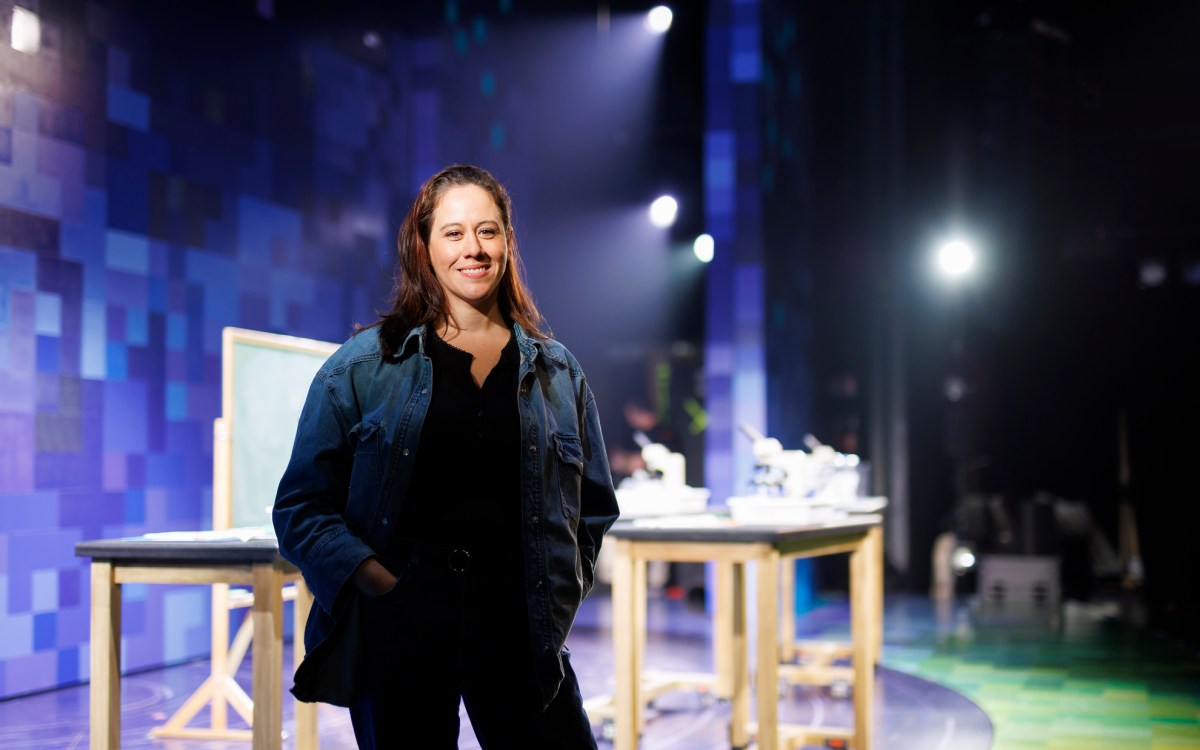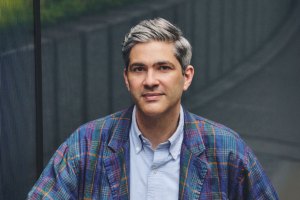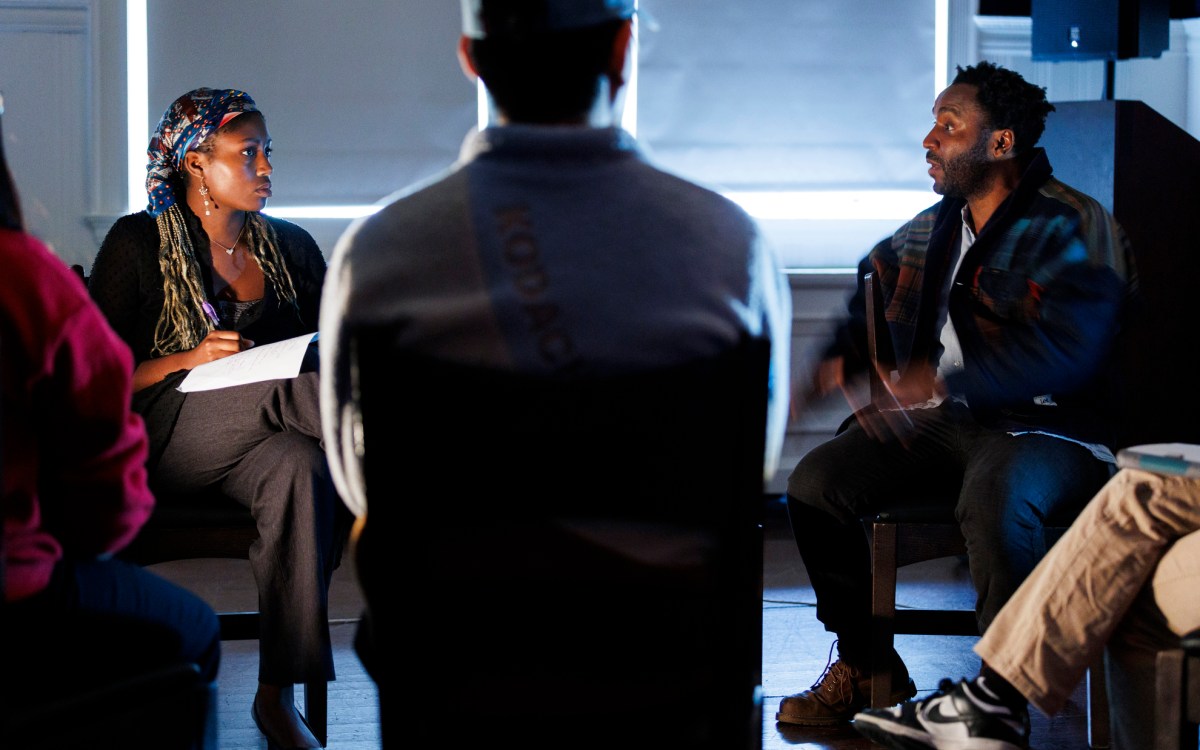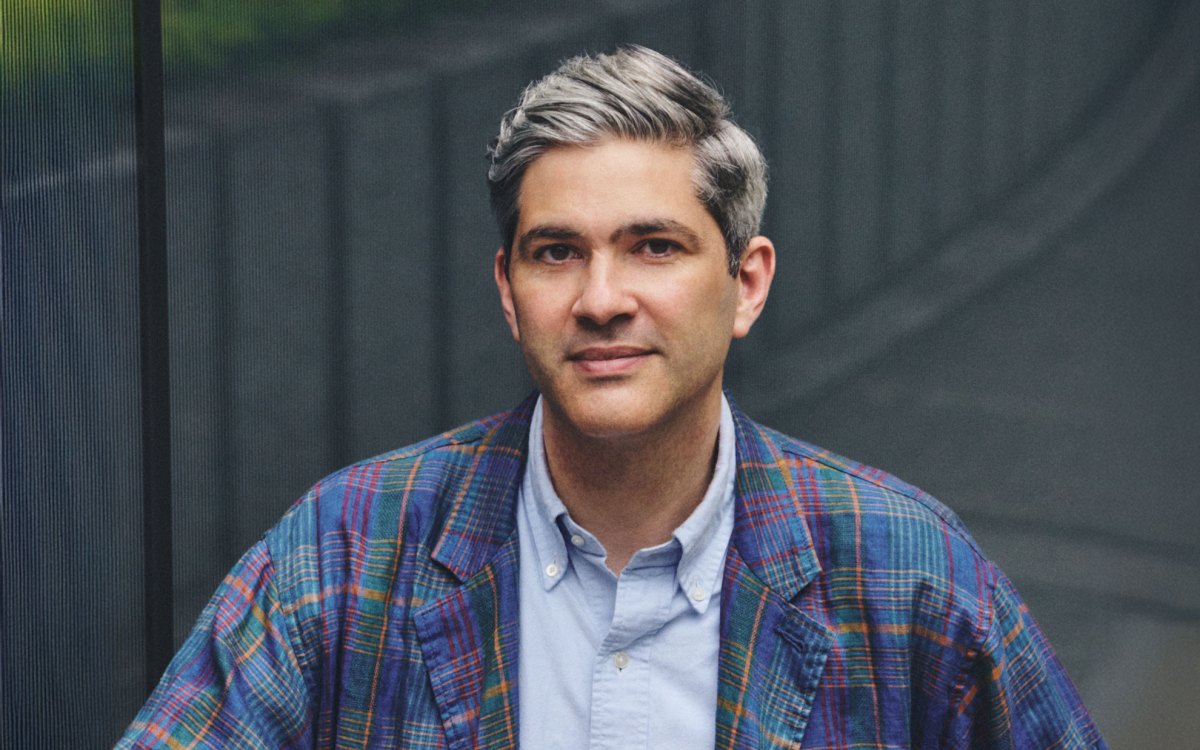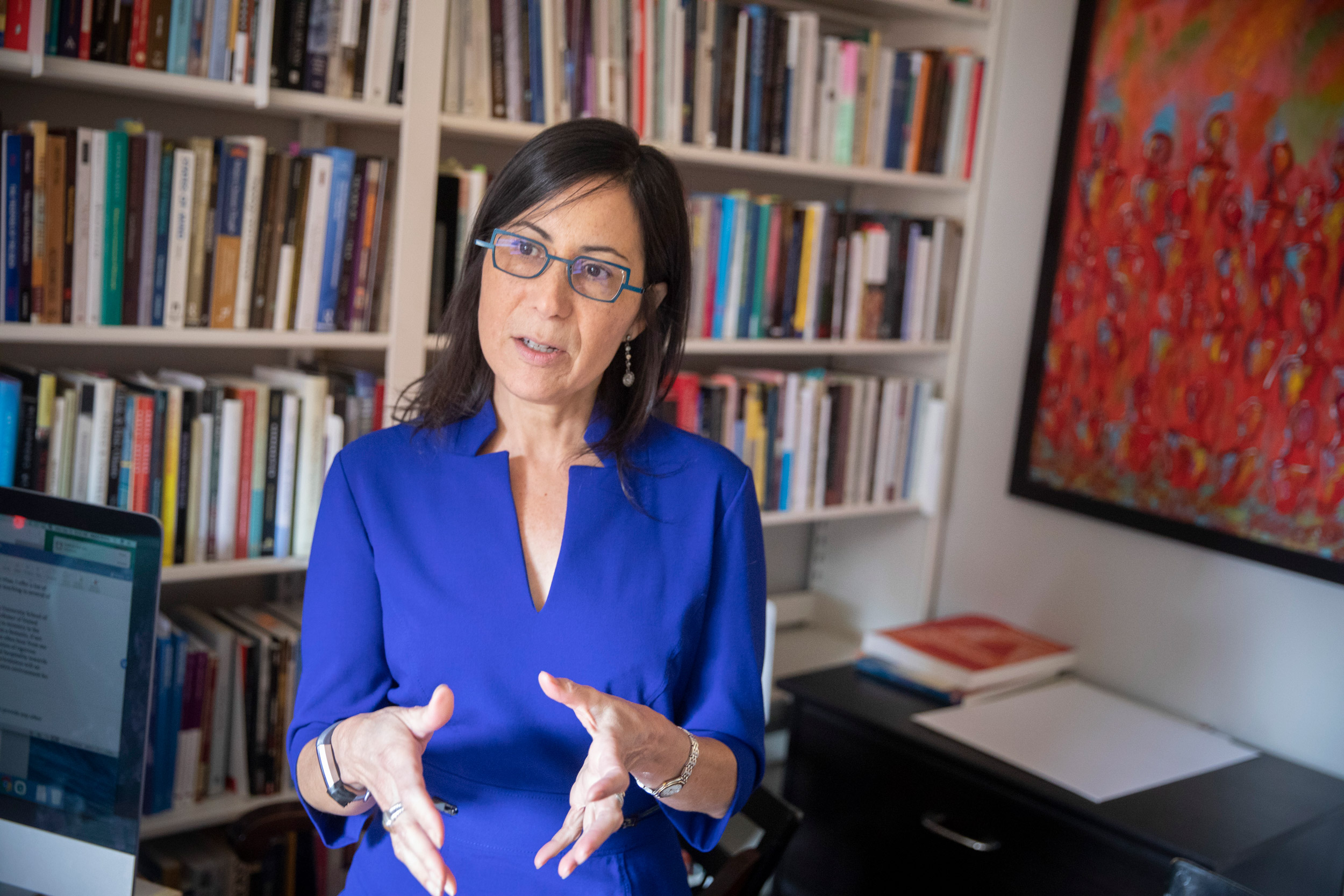
“Fostering a sense of belonging requires context that allows students and faculty to be their authentic selves,” says Mayra Rivera, chair of Harvard’s Committee on Ethnicity, Migration, Rights. “We strive to keep that principle front and center in our work.”
Kris Snibbe/Harvard Staff Photographer
Where ideas, tensions converge
Faculty chair of Committee on Ethnicity, Migration, Rights shares vision for interdepartmental program
A professor of religion and Latinx studies at Harvard Divinity School and Romance languages and literatures at the Faculty of Arts and Sciences, Mayra Rivera draws on her cross-disciplinary background in her role as faculty chair of the Committee on Ethnicity, Migration, Rights (EMR), the interdepartmental program that focuses on the group’s title categories, paying particular attention to Asian American, Latinx, and Native American studies.
Rivera took that chair last fall. We asked her about her vision for EMR’s evolving role on campus, and how her work with the committee connects to her own fields of study.
Q&A
Mayra Rivera
GAZETTE: Much of your work is in the field of religion and theology. Is there a connecting path between that background and your role as chair of EMR?
RIVERA: I explore how religious ideas exist alongside cultural ideas, how they are informed by culture and, in turn, inform culture. My specific focus has been the relationship between religion, race, and colonialism. In my early work, I studied the U.S. intervention in Puerto Rico, and how in that context the idea of the U.S. as a nation had to do with religion, race, and economics. I’ve dealt with religion in ways that are always related to ideas of race and ethnicity and power and colonialism, topics that are central to what we do at EMR. I came to Harvard in 2010, and joined what was then Ethnic Studies in 2012-13, when we were discussing the framework for EMR. Those conversations were very important for me, and through them I met other faculty studying colonialism and ethnicity more broadly.
GAZETTE: What do you see as the program’s current role at the University, and are there other ways it might serve students?
RIVERA: The goal of EMR is to create an intellectual space in which we can support students doing research in studies that have to do with ethnicity, indigeneity, migration, and rights in relation to gender, sexuality, and other dimensions of difference, but also to be a resource for other departments and programs in the University. So a lot of what we do is to connect. We try to connect the course offerings from different departments and schools so students make the most of the resources available at Harvard. And we also connect people, especially students, who have related interests. A lot of our programs are aimed at fostering collaboration between students in different areas of the University or students at different levels of studies.
GAZETTE: A central premise of EMR is that ethnicity and migration are closely related to issues of rights. What are some examples, and how do you try to make that connection?
RIVERA: Ethnicities are historical and contextual. They came into existence; they have a history. And questions of who belongs to a nation change through history. Take, for example, questions about the separation of migrant families in the U.S. There is clearly an interconnection with rights. The debate has an implicit question: What do we owe people who are not citizens of our nation? The relations — in this case between migration and rights — are a reason for studying them together.
I think there are also intellectual reasons to explore how these themes might be in tension with each other. For instance, we are aware of how questions of migration might be in tension with questions of indigeneity. By naming them together we want to foreground the need to engage in conversation, to wrestle with the tensions, rather than implying that these are set terms or categories or ideas. We want to foreground that these are rich areas of inquiry.
GAZETTE: EMR has increasingly been looking at ways to expand collaborations with other Harvard departments and programs. What are some of those relationships?
RIVERA: We are very aware that we need to be talking about ethnicity in relation to other things. Two of those are colonialism and migration. I think questions of gender and sexuality are also present in these discussions. So we have started to collaborate with Studies of Women, Gender, and Sexuality. We are developing two introductory courses: one that shows how questions of ethnicity are always woven through questions of gender and sexuality, and another that flips it — an introduction to critical ethnic studies that shows how gender is woven through all questions of ethnic studies.
More generally, EMR is a place of connections. We are constantly looking for ways to broaden our conversation. We are starting this year an ongoing program in which we will be inviting people from different departments and disciplines to talk about how these questions that we broadly name are engaged in their particular disciplines.
GAZETTE: Do you think EMR is of particular relevance at a time when migration and ethnicity have become such contentious issues nationally and globally?
RIVERA: It’s impossible to ignore it. It’s one of those moments in the history of the U.S. when it becomes so clear that the questions at the heart of these studies, in all their complexity, are just crucial for our lives. Every day we see these deep questions, such as: Why do we need to identify particular groups in particular stories, or how do we name cultural differences, or how does the history of Latinos or Asian Americans shape the way we talk about the U.S. or about migration? The idea is to provide a space where we can ask the questions, we can interrogate, we can learn to analyze the ways we think about identity and its relationship to knowledge.
GAZETTE: Does the centrality of these issues today give EMR a special responsibility to try to spur discussion of related topics within the University community?
RIVERA: It’s a particularly important moment for Harvard. The Presidential Task Force on Inclusion and Belonging expressed Harvard’s commitment to be inclusive, which is at the heart of EMR because its mission is to foster inclusion of a diversity of traditions of knowledge. Fostering a sense of belonging requires context that allows students and faculty to be their authentic selves. We strive to keep that principle front and center in our work.
GAZETTE: What are you focusing on now in your own studies and how do you draw inspiration from that work that might connect with your efforts at EMR?
RIVERA: I’m starting to do research for an article on the religious metaphors in anti-immigration discourse. I’m tracking the ways U.S. identities are being defined in relation to religion. I am asking how these ideas about religion influence how we talk about immigration and belonging in the current context. That work is the kind of transdisciplinary work of EMR.
Interview was edited and condensed.
